Can you eat meat without damaging the environment?
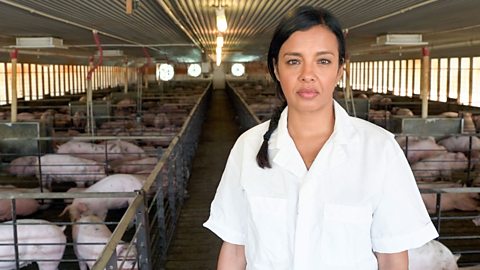 Image source, BBC
Image source, BBC“I’ve eaten meat my whole life, but the more I learn about our planet, the more I question how we treat it”, says Liz Bonnin at the start of new BBC One documentary Meat: A Threat To Our Planet?.
Over the next 60 minutes, we see the wildlife biologist travel from ‘feedyards’ (cattle ranches), pig farms and research facilities in the USA to the Amazon rainforest. She then heads to Brazil’s Cerrado region and makes her way to Robben Island in South Africa, before the programme comes to an end at a Welsh farm where they’re doing things a bit differently. The reason? To see how the environment is impacted by the meat industry – whether that’s due to the methane and waste animals produce or the feed for livestock.
“Unless we do things very differently,” says Liz, “the impact the meat industry has on our environment is only going to get worse. As demand increases, so do greenhouse gas emissions, so does pollution, so does the destruction of biodiversity. Which leads to one very obvious question: should we just stop eating meat?”
This question is asked often, and the answers given can be divisive. So, we ask experts – what’s the least environmentally damaging way to eat meat?

Nutrition should be taken into account
Professor Nigel Scollan, Director of Institute for Global Food Security, Queen's University Belfast
“It’s critical we all take responsibility for reducing the environmental impact of all foods.
“When trying to do this, we need to consider the nutrient density each food has. This means questioning what the food contributes to our health and wellbeing. You want the highest nutritional density per unit combined with the lowest negative environmental impact. So, for example, what nutrients you get per 100g of the food and how that sits with its environmental impact. By adding this angle, you are adding to the environmental impact equation – something that’s needed in this important debate.
“I believe animal-based proteins are very favourable compared with plant-based proteins. Ruminants (cows and sheep) in particular are very positive because they convert plant-based material that’s not edible for humans, such as grass, into high-value, high-nutritient protein. Their meat also contains other micronutrients we need in our diet, including iron and zinc. They’re effectively bio-converters.”

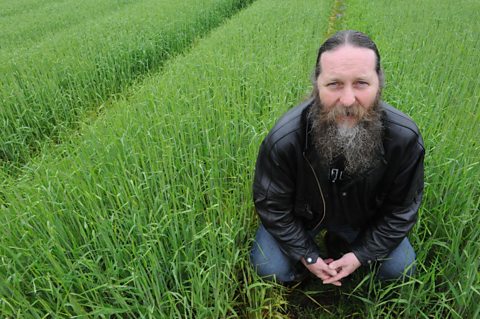
The best foods are plant-based
Professor Peter Smith, Chair in Plant and Soil Science at the University of Aberdeen and Convening Lead Author for the United Nations’ body: Intergovernmental Panel on Climate Change (IPCC)
“All meats have a higher climate, land and water footprint than the same quantity of plant-based foods. In the worst case (meat from ruminants, like beef and lamb), this can be 10–100 times greater than plant-based foods.
“Chicken and pork have a lower climate footprint than ruminant meat, as they do not produce methane like the ruminants do, but the downside is that they are not able to eat grass, so compete with humans for plant-based foods.
“The best foods by far, from an environmental perspective, are plant-based.”

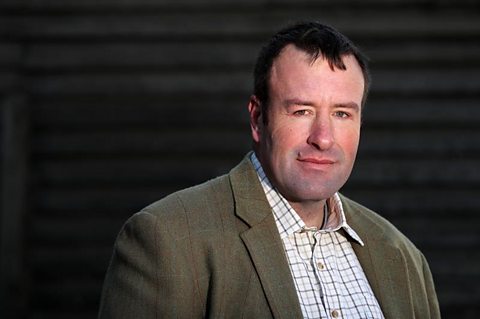
Buy British meat
Stuart Roberts, Vice President, NFU
“British farmers are leading the way in producing climate-friendly food and we are the only community to set an ambitious target to become net zero by 2040. People say ‘cut out meat to save the planet’, but this message wrongly implies all farms throughout the world have the same carbon footprint and environmental impact, and so misses the real point.
“In 2013, a report by the UN’s Food and Agriculture Organisation showed that beef produced in Britain (and the rest of Western Europe) is two-and-a-half times more efficient than the global average and four times more efficient than some other parts of the world. Our climate means we grow grass really well. With 65 percent of British farmland only suitable for grassland, the most efficient way to turn this inedible grass into high-quality, nutritious protein is to graze livestock – arguably providing the most climate-friendly way of feeding our growing population. Our extensive grasslands also act as a vital store of carbon and provide a habitat for floral diversity, which is dependent on grazed land to thrive. We believe it is far better to buy British meat than to rely on imported alternative proteins from production systems that don’t observe our high values or don’t share our environmental ambitions.
“By buying British, people can trust their beef and lamb have been produced sustainably by farmers who care.”


Reduce your meat intake by 70 percent
Chiara Vitali, Forests Campaigner, Greenpeace UK
“To avoid climate breakdown we need to reduce the amount of meat and dairy we’re eating by about 70 percent – that’s what the world’s top scientists are telling us.
“I think people have got the message that eating less red meat is better health-wise, but what many may not know is that switching from, say, beef to chicken is causing havoc for the world’s forests. That’s because vast amounts of animal feed used to fatten poultry in the UK are imported from South America, where agricultural expansion means the destruction of natural ecosystems.
“So it’s not just a case of switching one meat for another, but it doesn’t have to be about every one of us going completely vegan either – unless you want to. A 70 percent reduction looks like eating one portion of chicken and fish once a week and red meat once a month, with a heavy emphasis on home-cooked meals made from vegetables, pulses, nuts and seeds. It’s a healthy, balanced diet for us and the planet.”

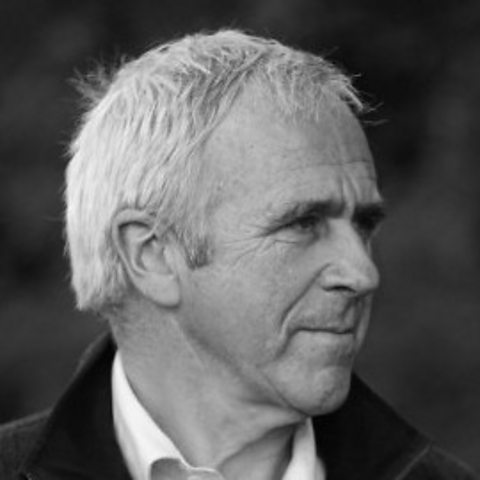
Eat grass-fed meat
Patrick Holden, Director, Sustainable Food Trust
“There’s been a critical failure in the past to look at which livestock systems and meats are part of the problem and which are part of the solution. The result is we are eating far less beef – 15 percent down in the last year and 50 percent since the 1980s.
“In order to support the transition to regenerative farming systems, which rebuild the fertility that has been lost during the intensive farming chapter, we actually need to eat more grass-fed meat, mainly beef and lamb.
“In the UK, two-thirds of the farmed area is currently pasture (grass and clover). These grasslands play a vital role in maintaining the soil carbon bank, as well as producing food we can eat, through the unique ability of ruminants to digest cellulose. Not only does this maintain a healthy soil, but the land works as a carbon sink – absorbing carbon dioxide. So, if you’re eating grass-fed beef, lamb and dairy, you can do so with a clear conscience, knowing you are part of the solution, not the problem.
“University of Oxford Professor Myles Allen has recalculated the amount of methane emissions from ruminants.As a result, he’s calling into question all the conclusions of the recent reports on climate change and agriculture. The inference from this new research is that we don’t have to stop eating grass-fed cattle or sheep.
“Instead of demonising livestock in general and cattle and sheep in particular, we need to differentiate between the animals that are part of the problem, namely intensively produced poultry, pork and diary products, and those that are part of the solution, namely grass-fed ruminants. At the root of the climate change problem is our fossil fuel consumption, this is where we need to take the most urgent action”.


Look for a sustainability logo
Jonathan Foot, Head of Environment, Agriculture and Horticulture Development Board (AHDB)
“Home-produced (British) beef and lamb is some of the most sustainably produced in the world, requiring very few additional inputs. Their grazing lands store carbon dioxide from the atmosphere and provide vital habitats and food sources for some of our most treasured and at-risk wildlife species.
“When buying red meat, look out for country of origin. In the UK there are assurance schemes that adhere to specified animal welfare and environmental protection standards – so you can be sure you are enjoying sustainably produced meat that makes best use of the UK’s resources.

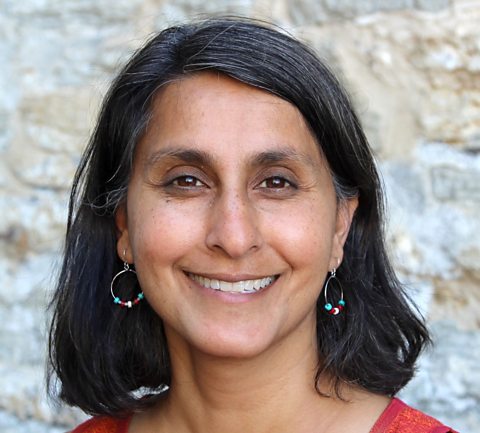
Consider where your meat comes from
Shefali Sharma, Director, Institute for Agriculture and Trade Policy’s European Office
“There are responsible ways of eating meat. You can begin with knowing the farm your animal came from and what kind of life the animal had. There are examples of well-managed, pasture-raised meat.
“The EU’s organic standard for livestock, for instance, requires that a farm holds no more than two cows per hectare of land. In the UK, there is labeling available too, which will tell you if meat’s been pasture-raised.
“It’s important to ensure pastures are well-managed and not over-grazed. It’s possible to eat meat and be environmentally and socially conscious, but it means trying not to buy meat that is mass-produced. Last year, we carried out research that examined the amount of greenhouse gases being emitted by the biggest [global] meat and dairy companies. We need to stop feeding their bottom line and instead allow for a dignified life for the animals and the farmers who raise them.”


Eat less meat and avoid intensive pig and poultry farms
Gareth Morgan, Head of Policy, Soil Association
“We cannot hide from the fact that we must change our diets to fight climate change. We need ‘less but better’ meat: less meat overall, but a shift to more meat from grazing animals that support wildlife and return carbon to the soils, like on organic farms. We need to phase out intensive pig and poultry farming, linked to rainforest clearance done for growing animal feed.
“Recent research found that with this diet change, we could stop diverting crops to feed animals and free up land to make agroecological, nature-friendly farming possible across Europe – allowing for a massive reduction in pesticides and greenhouse gas emissions.”
Meat: A Threat to Our Planet is part of the BBC’s Our Planet Matters strand, exploring the environment and the challenges facing our planet. Watch Meat: A Threat to Our Planet? on iplayer now.
